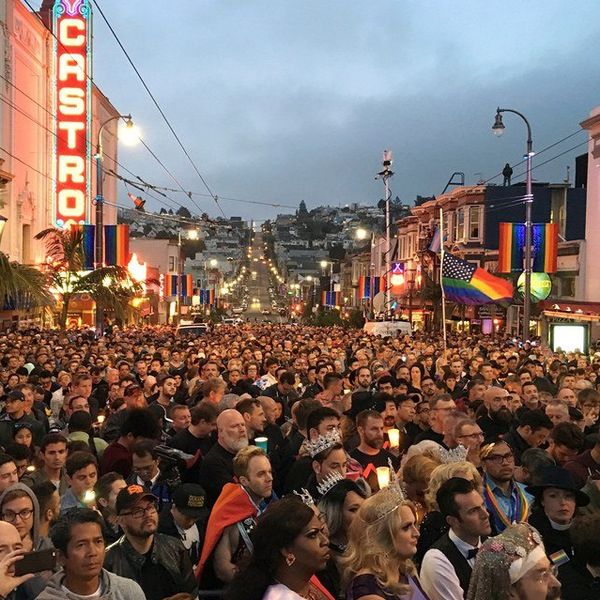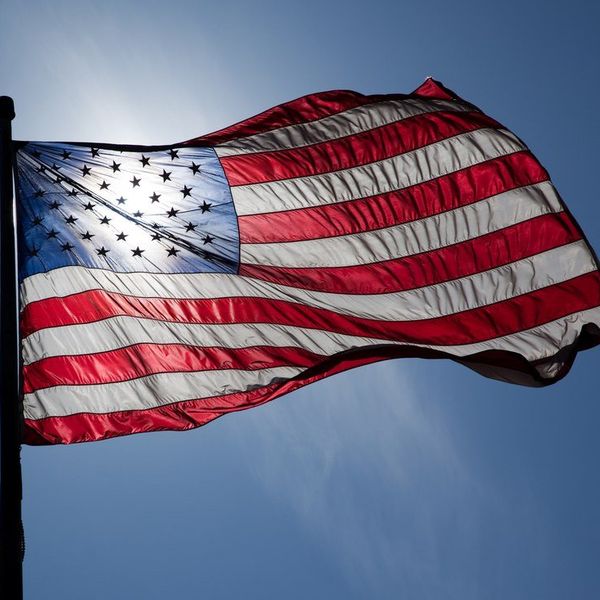On November 8th 2016, I made the mistake of watching the vote come in until 3 o'clock in the morning. By the time Trump had won almost every swing state, I was already in full blown tears, and literally cried myself to sleep. I did not go to school the next morning. As a vocal supporter and admirer of Hillary Clinton, I could not face my peers in class. I didn't want someone to ask me if I was okay, because I was not. I still am struggling to understand why our country allowed a sexist, racist, homophobic bigot to assume the office of the President of the United States.
Since arriving at Wellesley College this August, I have been surrounded by women who, like me, are equally disappointed, but also see their four years at this amazing institution as a positive opportunity in a difficult time.
Last week I attended a lecture with four Wellesley professors in departments ranging from economics to political science. It was wonderful to attend the lecture as I was reflecting on the year that has passed surprisingly quickly since Donald Trump was elected. I learned a great deal about our current President, and how things have changed since (love of my life) Barack Obama left office.
First, Economics Professor McKnight shed light on how healthcare has changed, or has not changed since the election. Trump promised to repeal and replace the Affordable Care Act (ACA). However, he and his Republican-controlled Congress has failed to do so. Now Trump has a new plan: let the ACA fail. How? Trump plans to reduce funding, get rid of the individual mandate (the requirement for Americans to get health care), and stop making cost-share subsidies. This plan is irrational. It would increase government costs and destroy our effective health care. So, Trump tried and failed to get rid of the ACA, but now is chipping away at the system which more and more Americans want and need.
Professor Marion Just of the Political Science Department’s lecture was my favorite of the four. Her central point was clear: "The symptoms of narcissistic personality disorder include: grandiose sense of importance, preoccupation with unlimited success, belief that one is special and unique, exploitative of others, lacks empathy, is arrogant and is jealous of others." Trump is clearly a narcissist, but different than most. Trump is now considered the most powerful man in the world, and his petty jealousies and fragile ego have undermined our political alliances worldwide and the political discourse in our own country. His obsession with his inauguration crowd, attacks on Hillary Clinton, battles with the media and within his own party has completely eroded the basics of democratic leadership. A group of psychiatrists have actually issued a warning that Trump may become violent if he continues to feel thwarted. With a president as impulsive, self-important and reckless as Trump, our country will continue to live in a constant state of panic.
Next, Professor Michael Jeffries of the American Studies department presented, beginning with a striking statement: “People who voted for Trump are racist and sexist.” We must first recognize that the racism and sexism is nothing new in politics -- it started pre-Trump, especially during Obama's two terms. Donald Trump brought light and attention to the issues that we have always had with race and gender in politics, which is both terrifying and important for this country. Since Trump's inauguration, hate groups and hate crimes have increased. Leaders set norms and followers follow their leaders, so this behavior is telling. In addition, we now live in a world of falsehoods. This ties into the reasons behind why Americans voted for Donald Trump, a question I've asked myself the past 12 months. So why did they? 1. Party loyalty -- voters didn't pay attention to what he did or said. 2. Voters knew what he did, yet ignored it. 3. Voters knew exactly what he did, and endorsed his behavior. The most dangerous group of all however is 4. Voters heard what he did and didn't believe it. This is incredibly dangerous state of affairs. Trump is in fact a pathological liar, and there are two reasons for this: 1. He has a cognitive inability to tell or see the truth. 2. He is aware of the truth, but continues to disavow it. No matter what reality Trump lives in, his actions are dangerous and challenge our political institutions.
And finally, Professor Paul MacDonald of the Political Science department shed light on American foreign policy since Trump's election. Trump has declared NATO as obsolete, and said he didn't want to help struggling countries. He then went on to name the UN as irrelevant as he simultaneously broke ties with allies, pulled out of the Paris Agreement (see my previous article for more on this), as well as threatening to pull out of the Iran Deal. However, the people in Trump’s cabinet have realized many of Trump's mistakes, and in response invited NATO allies to the White House (for the purpose of their help in Afghanistan). Trump has broken ties with our allies, called foreign leaders inappropriate names, and begun to dismantle the State Department, starting with a proposed budget cut of 31%. His administration has also empowered the Department of Defense, with plans to raise the current budget of roughly 600 billion dollars, as well as increasing air power, covert operations, raids, and drone strikes. As a whole, foreign diplomacy will suffer under Trump's administration.
I feel as though I should be glad that Trump has not been able to do everything he has promised to do. For example, Congress has passed sanctions on Russia, and the President has upheld them. This is evidence of checks and balances doing their job. However, this does not mean that Donald Trump will cease to dismantle policies, institutions and services his predecessors have created. It does mean that our governmental systems in place will only hold Trump back for a long time, but he will continue to make erratic claims and proposals, which will perpetuate fear in America. After the election I am still dismayed by Trump’s continuing support, even though it is 30%. My fear of him still remains as he is a known narcissict who appeals to the worst nature in people. Though Trump has been stopped in many of his efforts, he has still created an America of divisiveness, hate, and fear. This is not an America I want to live in. However, I do believe in our country, and its people, and I am holding onto hope that Donald Trump and his reckless behavior will be contained by the institutions our government has crafted.



















